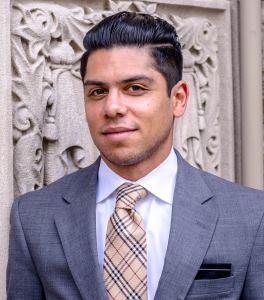
Growing up in Mexico, food was a very important part of my life and upbringing. Food brought family together. In el campo, bonds were formed and culture shared, y en la cocina lessons were learned and recipes passed down to younger generations. I vividly remember helping my grandmother pick fresh peppers for her famous chorizo con papas; just as I’ll never forget how she would have me bury the extract from her vegetable juicing directly in the soil.
As if growing up in a food-friendly household wasn’t enough, the streets and alleys of Mexico offered some of the most delicious yet affordable food in the world, and presented it with uniquely memorable human experiences and interactions.
It is probably for this reason that I always wanted to be a chef. I wanted to make people happy through food. I wanted to see them smile thanks to a plateful of good, fresh food cooked with time and care.
But at a young age I was dissuaded from pursuing this aspiration. I was told my GPA was too high to go to culinary school. I was told to go to business school instead and learn how to be a manager, and that I could always learn to cook later. And while I did not follow my heart, I did enjoy relative success in my (not-so-) chosen field. Yet, I yearned for more, and my desire to connect with others through food did not dissipate.
It is in this context that in 2010 I started to pay particular attention to childhood obesity rates, and specifically how communities of color were disproportionately affected by diet-related diseases. I was teaching 9th grade history in a public charter school in Washington D.C. All of my students were either African-American, Latino or West African. Most were on free or reduced lunch and many lived in poverty. As such, I witnessed first-hand how malnutrition, hunger and obesity negatively impacts student performance.
During this time I was also disappointed to learn that the United States and Mexico were the first and second most overweight and obese of the OECD countries (Mexico has since surpassed the U.S.). Given my connection to both countries, I felt not only a responsibility but almost an obligation to do something about it. And it is for these reasons that in 2011 I co-founded The Institute for Student Health (ISH) to teach students and their families about healthy eating and an active lifestyle.
Founding the ISH has been a fun and rewarding adventure that began in San Diego, CA and is now based in Washington D.C. We cook, garden, dance, run and shoot archery with students. We’ve impacted over 500 students and their families with minimal funding and an abundance of passion. Last year we were fortunate to be granted financial support for our efforts, and while I do not receive any economic compensation from this work, it fulfills me in ways my actual paying job cannot.
But one thing I have noticed in the healthy food and fitness movement is that like many other industries and board rooms in the United States, it lacks diversity. Specifically, there seems to be limited Latino and/or Hispanic participation. I find that mind-boggling.
Latinos are a sixth of the population and a quarter of all school-aged children. We over-index on poverty, hunger, being over-weight or obese, and use of food stamps. We also makeup a large percentage of food service workers and farm laborers. Yet when it comes to the growing healthy food movement, Latino voices seem to be missing from the discussion.
It is time for our community to join the discussion. It is time for Latinos to offer solutions and stop being the victims or vulnerable communities referenced. While I am grateful for what Chef Ann Cooper, Michael Pollan, Jaime Oliver and Alice Waters have done for this movement, it is time we get to know and look for leadership from Marcela Valladolid, Rebecca Lemos-Otero, Juan Carlos Pavlovich, Javier Plascencia and others in our community.
People of Latino decent have a long history when it comes to cultivating and preparing food. Whether it be through our Mayan, Aztec and Incan sisters and brothers and the innovative farming techniques that allowed their civilizations and culture to grow and flourish; or through the back-breaking and severely undervalued work done by our hermanas y hermanos in fields and kitchens across America today.
Food Day is meant to inspire Americans to change our diets and our food policies. Let me take this year’s celebration to encourage Latinos across America to enjoy real food with their familias today, and to push for improved food policies throughout the year. Let us make this the year we resolve to make changes in Latino diets and take action to solve the food-related problems in Latino communities at the local, state, and national level.
This year’s Food Day has a special focus on food access and justice for food and farm workers. What better time for Latino voices to become trusted food activists facilitating healthy and affordable food and improving the physical and environmental health of Latino communities.
Roberto Adrian Fierro co-founded The Institute for Student Health, and serves as the Senior Associate of Government Relations at D&P Creative Strategies.

Recent Comments